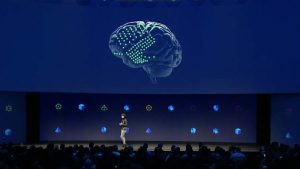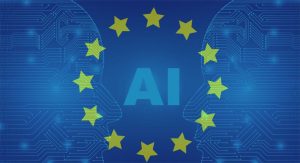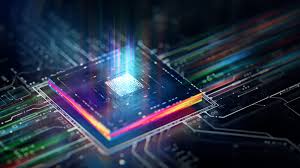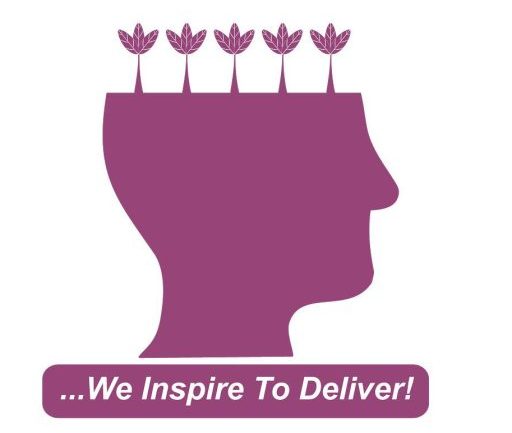Hey, Tech enthusiast! Your Daily Dose of Tech This Thursday is here @DawentsIT …We Inspire To Deliver!
Your Daily Dose Of Technology News – July 31, 2025.
1. Meta Expands Reality Labs with New Research into Brain-Computer Interfaces:
Meta Platforms unveiled new initiatives within its Reality Labs division focusing on brain-computer interface (BCI) technologies. The company revealed progress on their non-invasive BCI headset prototype capable of decoding neural signals to enable control of digital environments purely via thought.

Meta’s researchers claim this device will support applications ranging from immersive virtual reality experiences to assistive technologies for people with disabilities. Although still in experimental phases, Meta aims to integrate BCI technology into its Metaverse ecosystem, facilitating more seamless and intuitive user interactions.
Meta plans to collaborate with academic and medical institutions to accelerate development and explore ethical guidelines surrounding neurotechnology deployment.
In Other News:
2. Google’s DeepMind Reveals GPT-6 with Multimodal Reasoning and Real-Time Language Translation:
Google DeepMind introduced GPT-6, the latest iteration in their flagship AI large language model series, featuring groundbreaking multimodal reasoning capabilities. GPT-6 not only processes and generates coherent text across multiple languages more fluently than its predecessors but also integrates image, video, and audio context into its responses, allowing for more nuanced comprehension and generation.
One of the notable innovations includes near real-time speech-to-speech translation with minimal latency, supporting over 100 languages and dialects, which promises to revolutionize global communication and collaboration. DeepMind also emphasized GPT-6’s improved safety measures, including bias reduction and robust content filtering, addressing ongoing concerns about AI ethics.
GPT-6 is being deployed initially in Google Workspace tools, enhancing email drafting, meeting summarization, and research capabilities, with broader API access planned in the coming months for developers and enterprises.
3. EU Implements Stricter AI Regulations — Impact on Big Tech Companies:
The European Union officially enacted the latest version of its AI Act, imposing more stringent rules on the development, deployment, and transparency of AI systems within its member states. Companies now face mandatory disclosure of AI use cases, requirements to conduct human rights impact assessments, and enhanced traceability to combat misinformation and bias.

This regulatory push specifically targets large AI providers including Alphabet, Meta, and OpenAI. The legislation demands that AI systems used for high-risk applications like recruitment, law enforcement, and credit scoring meet rigorous safety and fairness standards. Non-compliance could result in fines up to 7% of global annual turnover.
Industry leaders are adjusting strategies to comply with the new requirements, which experts argue could reshape AI innovation and adoption timelines in Europe, possibly prompting some companies to shift AI development efforts to regions with more flexible regulatory environments.
4. Breakthrough Battery Technology: Solid-State Battery Startup “VoltEdge” Secures $500M Funding:
VoltEdge, a Silicon Valley startup specializing in next-generation solid-state battery technology, announced its successful $500 million Series C funding round led by prominent venture capital firms and strategic investors from the automotive industry.
VoltEdge’s proprietary solid-state batteries reportedly offer up to 50% more energy density and 3 times faster charging speeds compared to typical lithium-ion cells, while significantly reducing fire risk. These advancements align well with the increasing demands for electric vehicles, consumer electronics, and grid storage applications.
The company plans to open a pilot manufacturing facility later this year, aiming to partner with major EV manufacturers and consumer device companies for commercial-scale production starting in 2027. Industry analysts view VoltEdge as a strong contender accelerating the transition to safer, higher-performance energy storage solutions.
5. Tesla Reveals Full Self-Driving Beta 12.0 with City Street Navigation:
Tesla’s CEO Elon Musk announced the rollout of Full Self-Driving (FSD) Beta 12.0 to a wider pool of customers, featuring the highly anticipated city street navigation capability. This upgrade enables Tesla vehicles to autonomously navigate complex urban environments, including handling traffic lights, four-way stops, roundabouts, and pedestrian crossings with significantly improved safety and precision.
Beta 12.0 is powered by Tesla’s new onboard supercomputer, Dojo V2, which processes trillions of real-world driving miles collected via its extensive fleet to continuously improve autonomous driving algorithms using machine learning.
Regulatory agencies in the U.S. and Europe are observing closely, with some jurisdictions beginning to draft new legislation to accommodate advanced autonomous features like those found in Tesla’s FSD. Tesla states that driver supervision remains mandatory, but the company is optimistic full Level 5 autonomy could be achieved within the next two years.
Odds And Ends:
6. Breakthrough in Quantum Computing: IBM Unveils 1,000-Qubit Processor Prototype:

IBM has announced a significant milestone with its latest quantum processor prototype, boasting over 1,000 stable qubits. This development marks one of the largest quantum systems demonstrated to date, pushing the boundaries closer to practical quantum advantage for complex computations. According to IBM’s research team, the new chip utilizes advanced error-correcting codes and cryogenic innovations to maintain qubit coherence longer than ever before. The company suggests that this breakthrough will accelerate the development of quantum algorithms for drug discovery, cryptography, and financial modeling over the next few years.
Experts believe IBM’s innovation intensifies the quantum race, putting pressure on both government and private sector competitors such as Google Quantum AI, Rigetti Computing, and China’s Alibaba Quantum Lab. Importantly, IBM also announced expanded partnerships with academic institutions to democratize access to quantum computing resources via the cloud.
7. Apple Launches Vision Pro 2 with Enhanced AR Capabilities and Eye-Tracking:
Apple has officially launched the second-generation Vision Pro AR headset, featuring significant hardware and software upgrades. The Vision Pro 2 offers a lighter frame, longer battery life (up to 6 hours on a single charge), and an ultra-high-resolution microLED display that doubles pixel density, providing an even more immersive augmented reality experience. New eye- and facial-tracking technologies allow more natural user interactions, improved gesture controls, and enhanced spatial audio.
Apple also introduced a revamped AROS 2 operating system that focuses on developer tools, enabling richer, more interactive AR applications. Additionally, the company revealed collaborations with major game studios and educational platforms, emphasizing the Vision Pro 2 as a device not only for entertainment but also for professional productivity and learning.
Pre-orders begin today, with shipments starting in early October. Analysts expect the Vision Pro 2 to further solidify Apple’s lead in consumer AR and mixed reality markets, competing directly against Meta’s latest Meta Quest Pro 3 announced last month.
Other Notable Updates:
* Microsoft announces Azure Orbital initiative expansion to enable better satellite data integration for businesses, improving connectivity and analytics in remote regions.
* Samsung Electronics debuts new foldable display technology offering 4K resolution and ultra-thin form factors targeting premium smartphones and tablets.
* Chinese startup Nuro announces autonomous delivery robot trials across multiple cities with innovative cold-chain logistics applications for groceries and pharmaceuticals.
* Cybersecurity firm SentinelOne warns of a new ransomware strain “ShadowCrypt” exploiting AI-generated phishing campaigns, urging enterprises to strengthen threat detection protocols.
Summary:
Today’s technology news marks a rapid acceleration in quantum computing, AI advancements, and next-generation hardware development, alongside emerging regulatory frameworks shaping the industry. The competition among tech giants to dominate AI, AR/VR, and autonomous systems is intensifying, with new innovations promising profound impacts across every sector from transportation and energy to health and communications.
The coming months will be critical in seeing which technologies mature into widespread adoption and how new policies influence the global technology landscape throughout 2025 and beyond.
As industries continue adapting to these advancements, consumers and policymakers alike are closely watching to ensure that technology works for the betterment of society, the economy, and the planet.
If you need a summary on any specific topic or more detailed information on emerging tech trends, feel free to ask us @DawentsIT or visit our website at www.dawentsit.com
Follow us for updated news, articles, and videos. Read more on https://dawentsit.com/ #Technology #DawentsIT #TechnologyNews #Tech #Meta #Google #BrainComputerInterfaces #BCI #GoogleDeepMind #GPT6 #AllThingsTechnologyNews #AllThingsTechnologyNewsToday #WeInspireToDeliver
